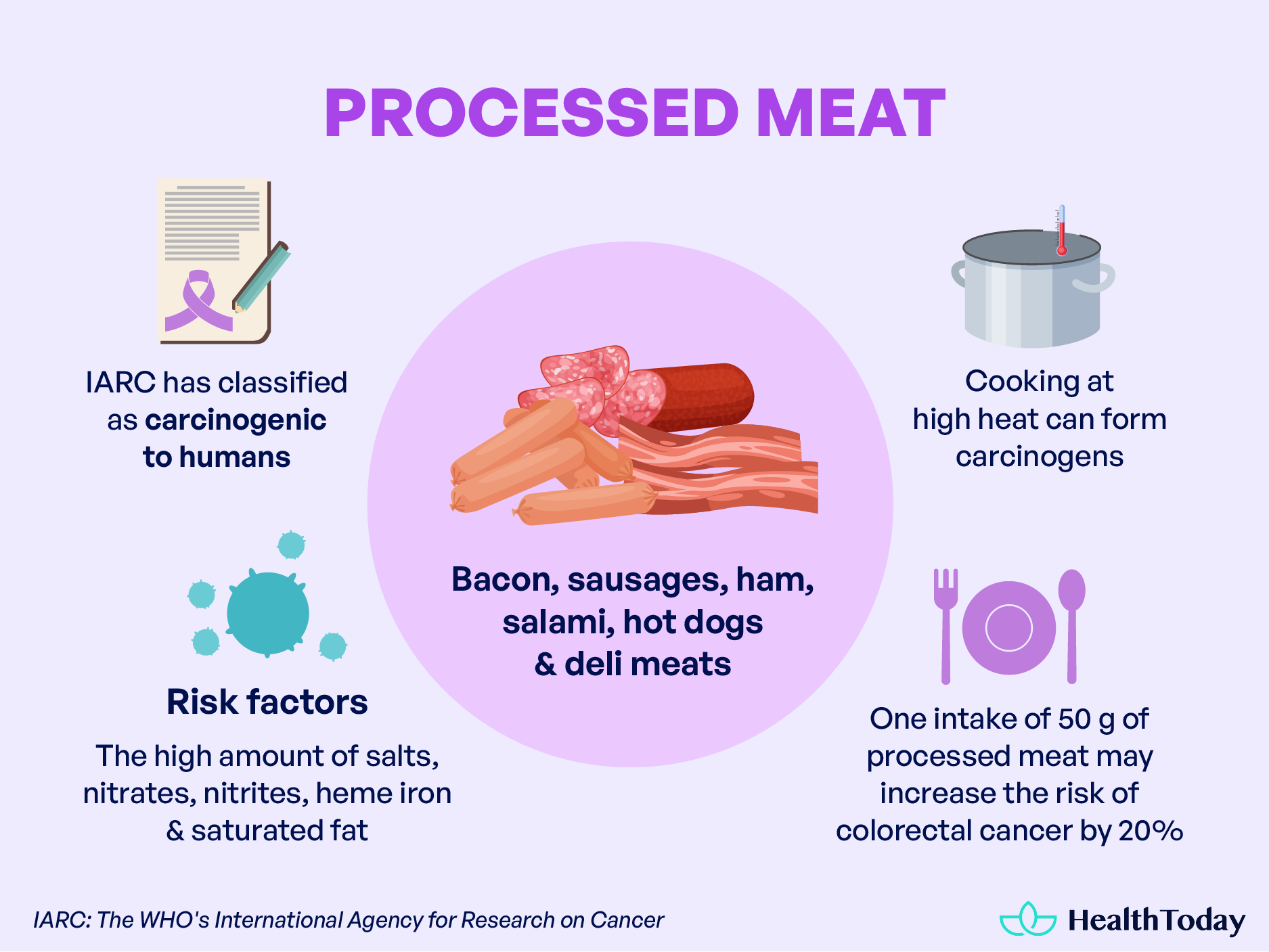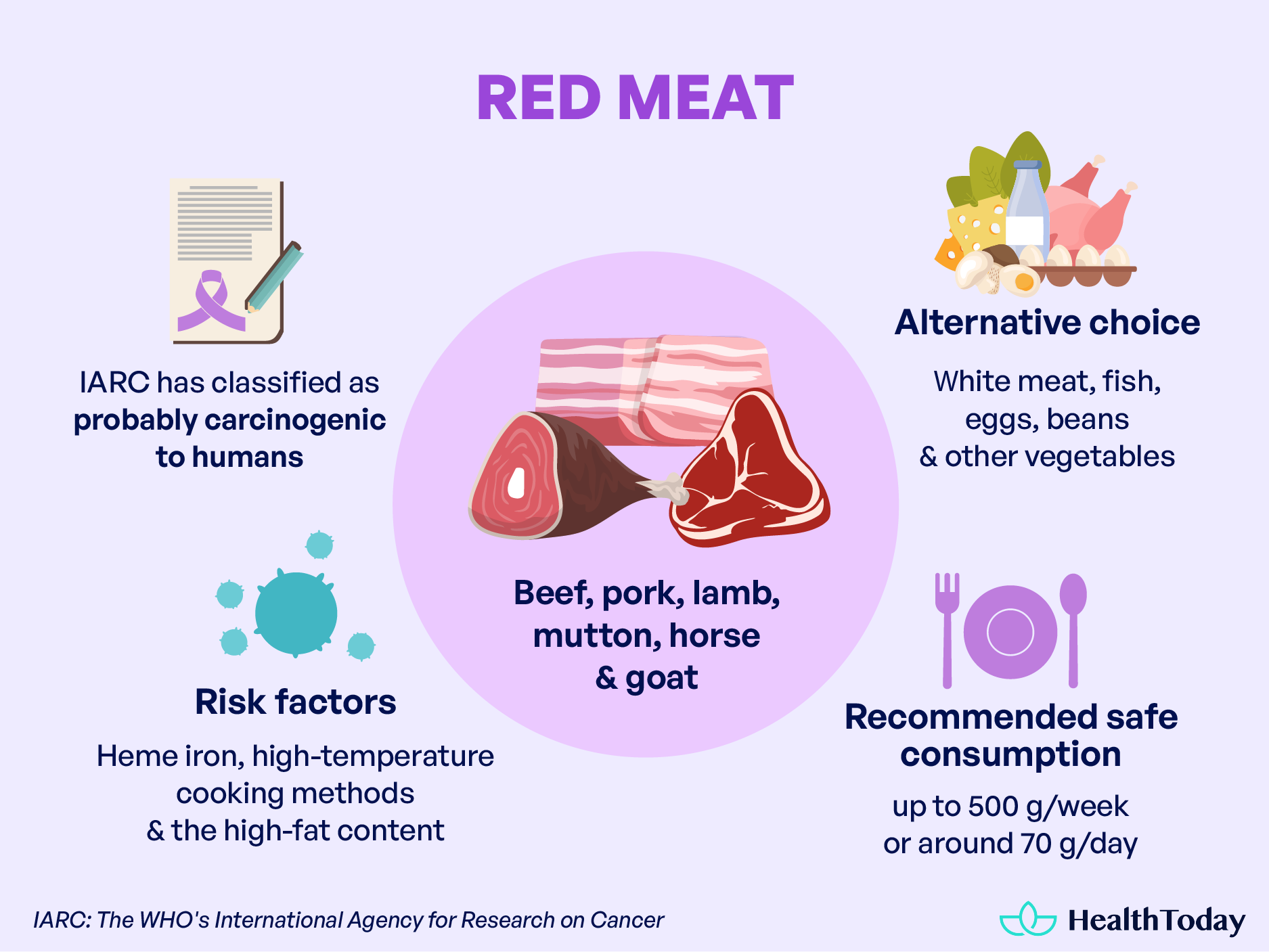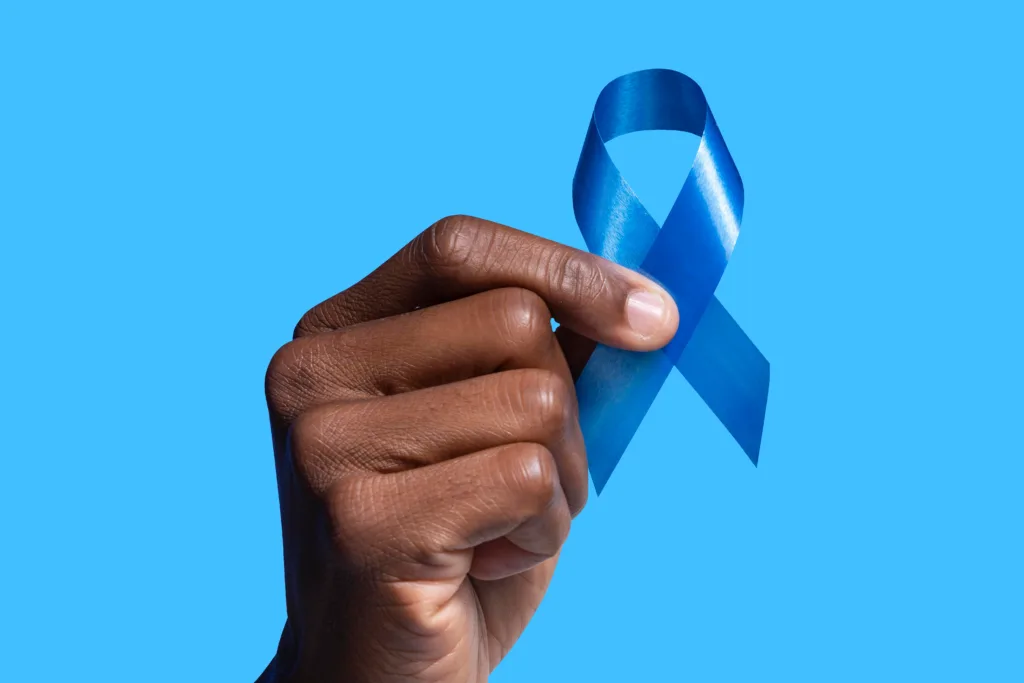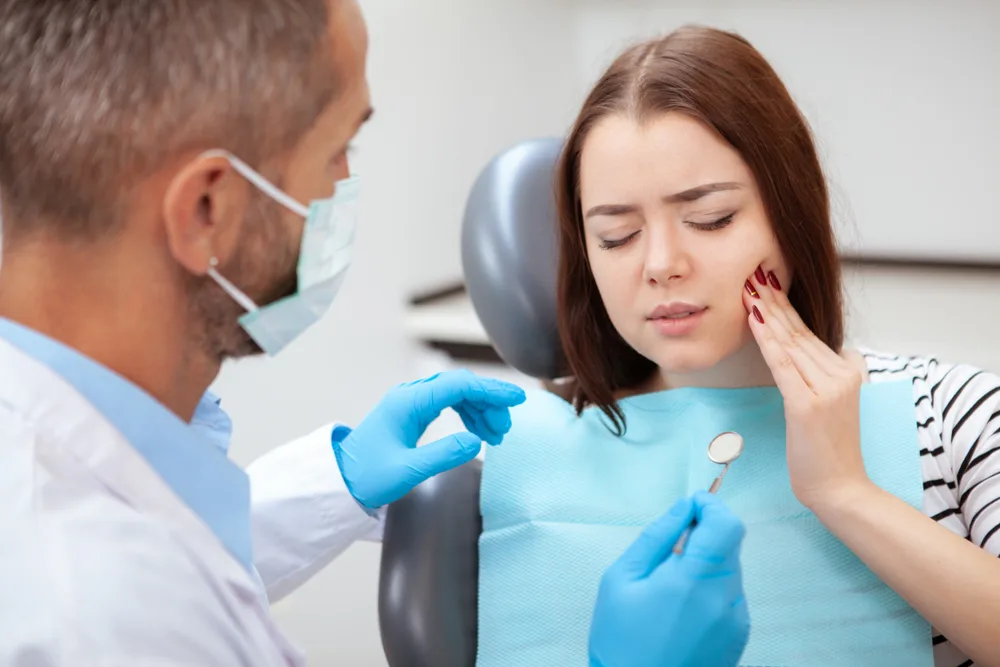Table of Contents
Meat and dairy products have been popular in every cuisine worldwide. However, meat consumption and cancer risk have been the subject of extensive investigation, particularly including red meat, processed meat, and dairy products. So, you might want to ask, “Does eating meat cause cancer?” Is bacon carcinogenic? Does milk cause cancer?
Let’s fire up the grill of knowledge and see what science says about the impact of meat in the world of cancer.
Does meat cause cancer? Red meat vs. processed meat
Cancer in the meat we eat has been a topic of concern and scientific research for several years. The question that often arises is, “Can meat cause cancer?”. While the research is complex and ongoing, there is potential evidence to suggest a relationship between meat consumption and certain types of cancer.
Is meat a carcinogen?
The question of whether meat is a carcinogen has been the focus of extensive scientific research. It’s inaccurate to categorize all meat as a single entity.
Some types of meat that are grouped to be potentially carcinogenic are red meat and processed meat (1). Both are mostly linked to the risk of colorectal cancer (1).
On the other hand, white meat, which includes fish and poultry – is shown to have a low to zero connection to certain cancers (2, 3, 4). Overall, the impact of white meat on cancer risk is still being studied. However, some indications are that replacing red meat with white meat could have health benefits. However, more research is needed.
Processed meat and cancer risks
Processed meat has undergone preservation methods like smoking, curing, salting, or adding preservatives. This includes bacon, sausages, ham, salami, hot dogs, and deli meats.
The WHO’s International Agency for Research on Cancer (IARC) has classified processed meat as carcinogenic to humans (5). One intake of 50 g of processed meat may increase the risk of colorectal cancer by 20% (6).

Several studies also showed that processed meat might increase the risk of other cancers, including the digestive system, mouth, throat, neck, and liver cancer (7, 8, 10, 11). While some studies have looked at the relationship between breast and prostate cancer, reviews have found no or inconclusive correlation between processed meat consumption and these cancers (9, 12). However, more research is needed as the relationship between processed meat and certain cancers can be complex.
Certain compounds found in processed meats may play a role in increasing cancer risk. The high amount of salts, nitrates, nitrites, heme iron, and saturated fat were considered contributing factors to the potential cancer risk (13, 14, 15).
Heterocyclic amines (HCAs) and polycyclic aromatic hydrocarbons (PAHs) are also carcinogens formed when meat is cooked at high heat (16).
Processed meat is classified as carcinogenic to humans and associated with an increased risk of cancers, especially colorectal cancer. Salts, nitrates, nitrites, heme iron, and saturated fat contribute to the potential risk of cancer. Cooking meat at high heat forms carcinogens.
Does red meat cause cancer?
Often connected with processed meat, the question of whether red meat causes cancer has also been of public interest. Several studies have explored the potential link between them, especially colorectal cancer.
Here is all the information you need to understand the potential impact of red meat on cancer risk; thus, you can make informed choices for a healthier lifestyle.
Is red meat a carcinogen?
The WHO’s International Agency for Research on Cancer (IARC) classified red meat as “probably carcinogenic to humans” based on evidence linking it to colorectal cancer (5). It means that red meat is likely carcinogenic but with limited evidence. Red meat is muscle meats, including beef, pork, lamb, mutton, horse, and goat.
Numerous studies have explored the relationship between red meat intake and cancer risk. Some studies have reported a modest increase in cancer risk, especially colorectal cancer, in individuals who consume higher amounts of red meat regularly (17, 18, 19).
Red meat has also been linked to other cancers like breast, pancreas, prostate, mouth, and liver cancers (20, 21, 22, 23). However, it’s important to note that the overall risk increase is small and sometimes inconsistent, for example, in the case of breast cancer. Individual factors such as genetics, lifestyle, and overall diet also play crucial roles in cancer development (24).

How does red meat cause cancer?
Several mechanisms might explain how red meat could contribute to cancer development. Some of the potential factors include the presence of heme iron in red meat. It can promote the production of harmful compounds in the gut, leading to DNA damage and cancer development (25).
Additionally, high-temperature cooking methods usually applied to meat, such as grilling, can produce carcinogenic substances like HCAs and PAHs (16). The high-fat content in some red meats also contributes to cancer risk. High saturated fat intake may promote inflammation and other cancer-related processes in the body (26, 27).
Pork, beef, and cancer: Facts or foe?
The discussion about red meat and cancer extends to specific types of meat. Special attention is given to pork and beef consumption for this topic. As both are red meat, they may be carcinogenic if consumed in high amounts. According to the American Society of Clinical Oncologists (ASCO), people can safely consume up to 500 g of red meat per week – or around 70 g per day – without raising cancer risk (28, 29).
It’s worth noting that processed pork and beef products, like bacon and sausages, have been more strongly linked to cancer risk. This is due to their nitrate/nitrite content and the formation of carcinogenic compounds during processing (13, 14, 15).
To reduce the potential risk of cancer, it’s recommended to balance your dietary choices. Besides red meat, you can fulfill your protein intake with white meat, fish, eggs, beans, and other vegetables (30). It’s also suggested that you should minimize the consumption of processed meats and choose healthier cooking methods.
Dairy and cancer: Is there any connection?
Still related to meat, many people wonder if milk and other dairy products can also have a negative impact on health. This leads to questions like “Does cheese cause cancer?” or “Can milk cause cancer?”. The answer to those questions is complex and multifaceted.
Some studies have suggested potential associations between high dairy intake and risk of certain types of cancer. For instance, there have been observations indicating that diets high in calcium may be associated with an increased risk of prostate cancer (31). However, other studies showed no correlation between them (32). Some studies even suggest the protective effect of dairy products on cancer risk, including colorectal cancer and breast cancer (33, 34).
Therefore, more extensive research is needed to confirm this connection.
Does fish cause cancer?
The link between fish consumption and cancer risk is still uncertain, but it can be considered low. Including various fish in moderation can be part of a balanced diet. Find low-mercury options and choose healthier cooking and preparation methods to minimize the potential risks.
How often is it OK to eat red meat?
The frequency of red meat consumption depends on individual health and lifestyle. But, the safe consumption limit of red meat is up to 500 g per week – or around 70 g per day. It’s also advisable to prioritize lean cuts, limit processed meats, and include other proteins like fish, poultry, eggs, beans, and tofu.
What type of cancer is linked to red meat?
The most common type of cancer linked to red meat consumption is colorectal cancer. Studies have shown that a high intake of red meat and processed meats may increase the risk of colorectal cancer. Their relation to other types of cancer is less conclusive or inconsistent.
Can I eat beef every day?
Yes, you can eat beef and other red meat every day as long as you don’t exceed the recommended amount, which is around 70 g per day. However, it’s better to incorporate other protein sources into your diet, including fish and seafood, poultry, beans, lentils, tempeh, and other plant-based alternatives.
What is the healthiest meat to eat?
The healthiest meats are lean options such as poultry (chicken and turkey) and fatty fish (salmon, mackerel, and others). These meats are lower in unhealthy saturated fat and heme irons, which may be bad for your health. They can provide essential nutrients and protein while supporting a balanced diet.
Summary
So, does eating meat causing cancer? The answer depends on many factors, including which kinds of meat you’re eating.
The relationship between diet and cancer risk has been extensively studied. Some of the main focuses are red meat, processed meats, and dairy products. The WHO classified processed meats as carcinogens. Some studies indicated a potential link between high red meat intake and certain types of cancer, suggesting that moderation is important.
Meanwhile, the relation between dairy and cancer risk remains uncertain, with mixed research findings, and consumption may even be protective of certain cancers. It’s always better to maintain a balanced diet and a healthy lifestyle to maintain overall well-being.

















Comments
0